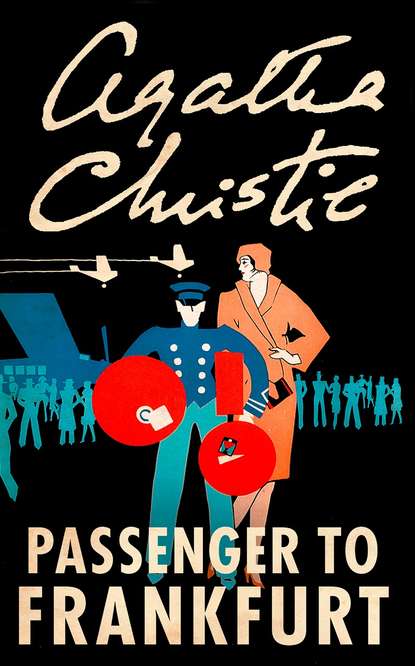По всем вопросам обращайтесь на: info@litportal.ru
(©) 2003-2025.
✖
Passenger to Frankfurt
Автор
Год написания книги
2019
Настройки чтения
Размер шрифта
Высота строк
Поля
16. Pikeaway Talks
17. Herr Heinrich Spiess
18. Pikeaway’s Postscript
19. Sir Stafford Nye has Visitors
20. The Admiral Visits an Old Friend
21. Project Benvo
22. Juanita
23. Journey to Scotland
Epilogue
Also by Agatha Christie
About the Publisher
Introduction (#udc706b63-8e95-5be4-9273-085032bb1de9)
The Author speaks:
The first question put to an author, personally, or through the post, is:
‘Where do you get your ideas from?’
The temptation is great to reply: ‘I always go to Harrods,’ or ‘I get them mostly at the Army & Navy Stores,’ or, snappily, ‘Try Marks and Spencer.’
The universal opinion seems firmly established that there is a magic source of ideas which authors have discovered how to tap.
One can hardly send one’s questioners back to Elizabethan times, with Shakespeare’s:
Tell me, where is fancy bred,
Or in the heart or in the head?
How begot, how nourished?
Reply, reply.
You merely say firmly: ‘My own head.’
That, of course, is no help to anybody. If you like the look of your questioner you relent and go a little further.
‘If one idea in particular seems attractive, and you feel you could do something with it, then you toss it around, play tricks with it, work it up, tone it down, and gradually get it into shape. Then, of course, you have to start writing it. That’s not nearly such fun—it becomes hard work. Alternatively, you can tuck it carefully away, in storage, for perhaps using in a year or two years’ time.’
A second question—or rather a statement—is then likely to be:
‘I suppose you take most of your characters from real life?’
An indignant denial to that monstrous suggestion.
‘No, I don’t. I invent them. They are mine. They’ve got to be my characters—doing what I want them to do, being what I want them to be—coming alive for me, having their own ideas sometimes, but only because I’ve made them become real.’
So the author has produced the ideas, and the characters—but now comes the third necessity—the setting. The first two come from inside sources, but the third is outside—it must be there—waiting—in existence already. You don’t invent that—it’s there—it’s real.
You have been perhaps for a cruise on the Nile—you remember it all—just the setting you want for this particular story. You have had a meal at a Chelsea café. A quarrel was going on—one girl pulled out a handful of another girl’s hair. An excellent start for the book you are going to write next. You travel on the Orient Express. What fun to make it the scene for a plot you are considering. You go to tea with a friend. As you arrive her brother closes a book he is reading—throws it aside, says: ‘Not bad, but why on earth didn’t they ask Evans?’
So you decide immediately a book of yours shortly to be written will bear the title, Why Didn’t They Ask Evans?
You don’t know yet who Evans is going to be. Never mind. Evans will come in due course—the title is fixed.
So, in a sense, you don’t invent your settings. They are outside you, all around you, in existence—you have only to stretch out your hand and pick and choose. A railway train, a hospital, a London hotel, a Caribbean beach, a country village, a cocktail party, a girls’ school.
But one thing only applies—they must be there—in existence. Real people, real places. A definite place in time and space. If here and now—how shall you get full information—apart from the evidence of your own eyes and ears? The answer is frighteningly simple.
It is what the Press brings to you every day, served up in your morning paper under the general heading of News. Collect it from the front page. What is going on in the world today? What is everyone saying, thinking, doing? Hold up a mirror to 1970 in England.
Look at that front page every day for a month, make notes, consider and classify.
Every day there is a killing.
A girl strangled.
Elderly woman attacked and robbed of her meagre savings.
Young men or boys—attacking or attacked.
Buildings and telephone kiosks smashed and gutted.
Drug smuggling.
Robbery and assault.
Children missing and children’s murdered bodies found not far from their homes.
Can this be England? Is England really like this? One feels—no—not yet, but it could be.
Fear is awakening—fear of what may be. Not so much because of actual happenings but because of the possible causes behind them. Some known, some unknown, but felt. And not only in our own country. There are smaller paragraphs on other pages—giving news from Europe—from Asia—from the Americas—Worldwide News.
Hi-jacking of planes.
Kidnapping.
Violence.

















